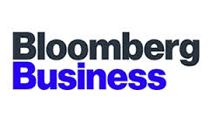The Most Trusted Agency On The Web For Booking Big Name Entertainment Since 1996
The Association Booking Information
Price: Call For Fee
Demo: 50 +
Request Fee
Looking to hire The Association for a private party, fundraiser, gala, public concert, wedding, college, fair or festival worldwide?
BookingEntertainment.com makes it easy to get available dates, pricing and fees for booking The Association.
Fill out an entertainment request form and a The Association booking agent who can assist you in booking The Association will get back to you to discuss booking The Association for your event.
Want to talk about your event now? Give us a call at (212) 645-0555 and one of our booking agents will be happy help you immediately.
Our office is staffed from 9:00 AM - 7:00 PM EST, Monday - Friday.
The Association BIO
The Association was one of the more underrated groups to come out of the mid- to late '60s. Creators of an enviable string of hits from 1966 through 1969, they got caught in a shift in popular culture and the unwritten criteria for significance in that field and never recovered. The group's smooth harmonies and pop-oriented sound (which occasionally moved into psychedelia and, much more rarely, into a harder, almost garage-punk vein) made them regular occupants of the highest reaches of the pop charts for two years — their biggest hits, including "Along Comes Mary," "Cherish," "Windy," and "Never My Love," became instant staples of AM play lists, which was a respectable achievement for most musicians at the time. That same sound, along with their AM radio popularity, however, proved a liability as the music environment around them changed at the end of the decade. Additionally, their ensemble singing, essential to the group's sound and appeal, all but ensured that the individual members never emerged as personalities in their own right. The Association was as anonymous an outfit as their contemporaries the Grass Roots, in terms of any individual names or attributes, despite the fact that both groups generated immensely popular hits that millions of listeners embraced on a deeply personal level.
The group's roots go back to a meeting in 1964 between Terry Kirkman, a Kansas-born, California-raised music major, proficient on upwards of two dozen instruments, and Jules Alexander, a Tennessee-born high school drop-out with an interest in R&B who was a budding guitar virtuoso. Alexander was in the U.S. Navy at the time, serving out his hitch, and they agreed to link up professionally once he was out. That happened at the beginning of 1965, and they at once pursued a shared goal, to put together a large-scale ensemble that would be more ambitious than such existing big-band folk outfits as the New Christy Minstrels and the Serendipity Singers. The result was the Men, a 13-member band that played folk, rock, and jazz, who earned a spot as the house band at the L.A. Troubadour. The group's promising future was cut short, however, when the group's lineup split in two after just a few weeks with seven members exiting. The remaining six formed the Association, the name coming at the suggestion of Kirkman's wife Judy.
Ted Bluechel, Jr. was their drummer, Brian Cole played bass, Russ Giguere was on percussion, and Jim Yester, brother of Easy Riders/Modern Folk Quartet alumnus Jerry Yester, played rhythm guitar behind Alexander. Each member was also a singer — indeed, their vocal abilities were far more important than their skills on any specific instruments — and several were multi-instrumentalists, able to free others up to play more exotic instruments on stage. The group rehearsed for six months before they began performing, developing an extremely polished, sophisticated, and complex sound.
The Association shopped itself around Los Angeles but couldn't do any better initially than a single release on the Jubilee label — their debut, "Babe, I'm Gonna Leave You," wasn't a success, nor was their subsequent 1965 recording of Bob Dylan's "One Too Many Mornings" on Valiant Records, which was an early folk-rock effort that was probably a little too complex for national exposure — though it got decent local radio play in Los Angeles. The group came completely into its own, however, with the recording of the singles "Along Comes Mary" and "Cherish."
The recording of those songs was to set a new standard in the treatment of rock music in America. As Ted Bluechel recalled in a 1984 Goldmine article by Marty Natchez, the voices were recorded at Columbia studios, while the instruments — played by Terry Kirkman and Jules Alexander, plus a group of studio musicians — were cut in an improvised four-track studio owned by Gary Paxton. Those two songs, and the entire album that followed, revealed a level of craftsmanship that was unknown in rock recordings up to that time. Producer Curt Boettcher showed incredible skill in putting together the stereo sound on that album, which was among the finest sounding rock records of the period. The fact that most of the members didn't play on their records was not advertised, but it was a common decision in recording in those days — Los Angeles, in particular, was home to some of the best musicians in the country; they worked affordably and there was no reason to make less-than-perfect records. Even the Byrds, apart from Roger McGuinn, had stood on the sidelines when it was time to do the instrumental tracks on their earliest records, although this sense that the Association's music was a "production" rather than the work of an actual band probably helped contribute to their anonymity as a group.
Considering their lightweight image in the later 1960s, the Association made a controversial entry into the music market with "Along Comes Mary" — apart from its virtues as a record, with great hooks and a catchy chorus, it was propelled to the number seven spot nationally with help from rumors that the song was about marijuana. No one is quite certain of what songwriter Tandyn Almer had in mind, and one wonders how seriously any of this was taken at the time, in view of the fact that the song became an unofficial sports anthem for Catholic schools named St. Mary's. "Cherish," a Kirkman original (which was intended for a proposed single by Mike Whelan of the New Christy Minstrels), was their next success, riding to number one on the charts. Among the most beautiful rock records ever made, the song has been a perennial favorite of romantic couples for decades since.
It was just at this point that the exhaustion that came with success and the avarice of their record label, along with a couple of artistic and commercial misjudgments, combined to interrupt the group's progress. Their next single, "Pandora's Golden Heebie Jeebies," was not an ideal choice as a follow-up to one of the prettiest and most accessible rock records of the decade, reaching only number 35, and "No Fair At All," the next single, also fared poorly. Equally important, the group was forced to rush out a second album, Renaissance (produced by Jim Yester's brother Jerry Yester), while they were honoring the burgeoning tour commitments attendant to a pair of huge national hits. It was also during this time that Valiant Records, including the Association's contract, was absorbed by Warner Bros. Records.
A major personnel problem also arose as Jules Alexander, one of the core players in the group, decided to leave. He headed off to India, where he spent most of the next year. He returned in 1967, intending to form his own group, which never got off the ground. In the meantime, the Association recruited multi-instrumentalist Larry Ramos of the New Christy Minstrels to replace Alexander. The group's lineup change coincided with their getting access to a song by Ruthann Friedman called "Windy." Another number one single, it was tougher to realize as a finished work, cut over a period of 14 hours with Friedman and Yester's wife, arranger Cliff Burroughs, and his wife, along with numerous others, all singing with them.
Insight Out, their third album, was a tough one to record as well. Initially to have been produced by Jerry Yester, it fell apart after it was half done when the group became unhappy with the sound and shape he was giving it. Instead, they turned to Bones Howe, an engineer and producer (most noted for his work with the Fifth Dimension, among many other popular acts), who finished the album with them. Insight Out was a better album than Renaissance, with pop, folk-rock, and hard rock elements that hold together reasonably well, although its audio textures lacked the delicacy of the group's debut long-player. The album's two hits, "Windy" and "Never My Love," were among their most popular and enduring records and helped drive sales of the 12" platter. The final track, "Requiem for the Masses," which featured a Gregorian chant opening, was a strange song mixing psychedelia and social commentary — its lyrics were a searing social indictment, originally dealing with the death of boxer Davy Moore ( Bob Dylan had written a song, very little known at the time, on the same subject four years earlier).
Immediately prior to the release of Insight Out, the group played the most visible live gig in their history, opening the Monterey International Pop Festival. The group didn't seem absurdly out of place, in the context of the times, on a bill with Simon & Garfunkel, the Who, Jimi Hendrix, Janis Joplin, Eric Burdon and the Animals, and the Mamas & The Papas. It was an ideal showcase, and as the tapes of the festival reveal, the group was tight and hard that night, their vocals spot-on and their playing a match for any folk-rock band of the era — Ted Bluechel's drumming, in particular, and Larry Ramos's and Jim Yester's guitars are perfect, and even Kirkland's flute came out well on stage. Had any part of their Monterey set been released, it might've helped correct the image that the Association were rapidly acquiring of being a soft, pop/rock group. Instead, their performance took some 20 years to see the light of day and longer than that for a pair of songs to show up on CD. The group's next album, Birthday, was a departure from its three predecessors, their attempt at creating a heavier sound. It was around this same time that they cut the single "Six Man Band," a very nasty critique of the music business written by Kirkman. The measures that the group took to change its image came too late — Birthday fell largely on deaf ears when it was issued in 1968, and the singles "Six Man Band" and "Enter the Young," the latter a re-recording of a song that highlighted their debut album, charted only moderately well.
Warner Brothers' release of a greatest hits album in 1969 boosted the group's album sales and consolidated the audience that they had, but did nothing to stop the rot that had set in. By 1969, the sensibilities of the rock audience had hardened, even as that audience splintered. Suddenly, groups that specialized in more popular, lighter fare, usually aimed at audiences outside the 17-25 age group, and especially those with a big AM radio following, such as Paul Revere & the Raiders and the Grass Roots, and the Association were considered terminally out of fashion and uncool by the new rock intelligentsia. If they got mentioned or reviewed in the pages of Rolling Stone, Crawdaddy, or Circus magazine, it was usually for a lark rather than in a fully serious context. They were usually lumped together with bubblegum acts such as the 1910 Fruitgum Company and the Ohio Express and represented the kind of music you left behind (especially if you were a guy) once you got out of ninth grade, if you had any intentions of being considered cool.
One positive development was the return of Jules Alexander to the lineup in 1969, which turned the group into a septet and gave them the services of three talented guitarists. The group's Goodbye Columbus soundtrack album, which included incidental music from the film of that name composed by Charles Fox, was the kiss of death for the group's credibility, regardless of the musical merits of their work. It was one thing for movies like Easy Rider to make use of music by the likes of the Byrds — that was part of a new wave of filmmaking — but as a film, Goodbye Columbus was a piece of Hollywood product. Coming out in the same year that Woodstock took place, it spoke volumes about where the Association was in relation to music and audiences.
By 1970, the group's biggest hits, dating from 1966 through 1968, were safely ensconced as oldies. The very fact that the Fifth Dimension and David Cassidy were to soon enjoy fresh chart success with re-recordings of "Never My Love" and "Cherish," respectively, didn't help their image among rock tastemakers. The Association Live might've redeemed them as a concert act, but for a major miscalculation, recalled by Terry Kirkman in the Goldmine article — the recording, done in Salt Lake City, UT, without allowing time for the members to adjust to the city's mile-high altitude, resulted in a lot of flat and raw singing (and playing by Kirkland on his recorder and other wind instruments) and, coupled with the inevitable leakages involved in most live rock recording, yielded a very poor body of songs, some which were redone in the studio after the fact. Regardless of the tinkering, this couldn't make a good album and The Association Live wasn't.
Warner Bros. released one more album, Stop Your Motor, which reached number 158 on the charts. At around that time, relations between the label and the group's manager deteriorated, and both sides parted company in 1971. Clive Davis, the president of Columbia Records, signed the group to his label. The resulting LP, Waterbeds in Trinidad issued in 1972, peaked at number 194. The group soldiered on, availing themselves of their lingering fame for their early hits, working into the following year.
The death on August 2, 1973, of bassist Brian Cole, as a result of a worsening drug habit, portended the breakup of the original core membership of the Association. Kirkman stepped back from the music business, while Jules Alexander formed a group called Bijou that got one promising single out through A&M Records. Ted Bluechel kept the group going with Jim Yester and Larry Ramos, adding other players like Ric Ulskey. After running out their string on stage, Bluechel, the last original member, began leasing the group name out, thus allowing oldies tour packagers to send out a version of "the Association" without any of the original members to play shows. That ultimately came to haunt the group as those rights proved somewhat hard to withdraw for a time, and bogus versions of "the Association" turned up on and off into the 1980s. The legitimate, original group members, including Kirkman, Alexander, and Bluechel, resumed working together in various combinations on the oldies circuit in the 1980s. In 1981 and 1982, the group even briefly hooked up again with their first producer, Curt Boettcher, to record a pair of singles for Elektra Records. Their work since the early 1980s centered largely on re-creating their classic recordings on stage and in the studio.
The Association's history on CD, at least in America, is virtually non-existent. Warner Bros., which has seen fit to do enhanced digital remasterings of Harpers Bizarre, the Everly Brothers, and Ry Cooder, has only ever issued a poorly mastered domestic CD transfer of the Association's greatest hits album. In Japan, however, all of their Warner Bros. albums (including a much-expanded version of the greatest hits collection) have been released in state-of-the-art high-resolution digital sound, with bonus tracks included, and packaging that recreates the original art and reprints the lyrics.
The Association Highlights
The Association Song List
- “Never My Love”
- “Windy”
- “Cherish”
- “Along Comes Mary”
The Association FAQS
Entertainment Request Form
Fill out the form below and your assigned agent will contact you quickly to see how Online Talent can best serve you and your clients.
This non-obligatory and confidential form was created for our booking agents to get a clear understanding of who you would like to book as well as your proposed date, budget and venue.
Our 20 years of agency / management relationships help you get the best possible price and ensures that your talent buying experience is handled with honesty and integrity. You can also talk to us about producing the entire musical portion of the event for one flat fee with no surprises...
Want to talk about your event now? Give us a call at (212) 645-0555 and one of our booking agents will be happy to help you immediately.
Our office is staffed from 9:00 AM - 7:00 PM EST, Monday - Friday.
50's & 60's
- Beverly Lee's Shirelles
- Bill Haleys Comet's
- Billy J. Kramer
- Bobby Vee
- Bobby Vinton
- Connie Stevens
- Danny & the Juniors
- Dion
- Donny Osmond
- Frankie Avalon
- Gary Puckett
- Gary US Bonds
- Gene Chandler
- Joey Dee & The Starlighters
- Little Anthony & The Imperials
- Mitch Ryder &
The Detroit Wheels - Peter Noone
- Sha Na Na
- The Association
- The Box Tops
- The Buckinghams
- The Chantels
- The Contours
- The Drifters
- The Friends of Distinction
- The Grass Roots
- The Ink Spots
- The Original Tymes
- The Searchers
- The Spencer Davis Group
- The Turtles
Get Started Now...
Easy, Secure & Confidential
Want to talk about your event? Call us at 212-645-0555
Office Hours 9AM-7PM EST Monday-Friday
NEED HELP? Please feel free to email us with questions at any time
Corporate Clients Include















Why You Should Use BookingEntertainment.com
As Your Source For Booking A-List Entertainment
"When you are looking to book big name entertainment for an event, there are a number of pop up booking agencies on the web that if they are reputable, simply book the acts and leave you to handle all of the responsibilities of producing the entertainment portion of your event. Our entertainment booking agents have been personally trained by me to ensure that the entire booking process and event production is handled flawlessly and with the personal touch that I make sure goes into every corporate event, private party or public concert that we handle. My reputation is on the line for every show we do, and I ensure that both our clients and the acts / celebrities that we book are treated to our unprecedented level of service.
Let our entertainment agent specialists show you how we can save you up to 30% on your production costs and why so many of our clients come back to our booking agency year after year to enjoy our hassle free service when they want to book big name entertainment for corporate events, private parties and public concerts worldwide."
CEO & President - Steve Einzig
"The first thing I do when I am planning my event for next year is call Steve at BookingEntertainment. Our event is at the Waldorf Astoria every year, and the team at BookingEntertainment delivers a perfect experience year after year. No matter what time we get in the room, BookingEntertainment makes it work."
J.T - Hospital Fundraiser - New York - (Stevie Wonder, Carole King, The Doobie Brothers, Kelly Clarkson, Don Henley, Chicago, Hall & Oates, Melissa Etheridge, Sheryl Crow, Stevie Nicks, Natasha Bedingfield)
"They make corporate event planning a snap!! When we were looking for an entertainment agency while in the party planning stage of our event, BookingEntertainment.com was the only talent agency that we felt comfortable with. They delivered in a huge way. We loved dealing with them and the event was perfect."
M.B - Private Client - Barbados - (Bon Jovi, Meat Loaf, Bryan Adams, Kenny Rogers)
"Our events with BookingEntertainment have been perfect. They saved us over $200,000 in costs that were needlessly spent in previous years."
R.W - Fundraiser - Las Vegas - (Billy Joel, Stevie Nicks, Hall & Oates)
"BookingEntertainment is one of my favorite vendors. As the corporate meeting planner for a Fortune 500 company, my logistics sometimes incorporate more than 1000 people over several days of meetings and events. Year after year, the final evening concert is a SMASH!! With BookingEntertainment ensuring every last detail is attended to, I am free to relax and enjoy the show with my clients and colleagues."
B.M - Fortune 500 Company - Dallas - (Don Henley, Bonnie Raitt, Penn & Teller)
"Booking Entertainment is a first-rate company that provides more than just booking services. From solid recommendations that fit the target audience to top-notch event production, Booking Entertainment truly delivers. I've been working with Steve Einzig and his staff for over two years on all of our events and highly value their professionalism. Once I have made the call, I know that I don't have to worry about the entertainment for the event. That kind of comfort and assurance is priceless."
A.W - Corporate Event - Atlantic City and Baltimore (Lionel Richie, Donna Summer)
 Home
Home
 BIO
BIO
 Highlights
Highlights
 FAQS
FAQS

















